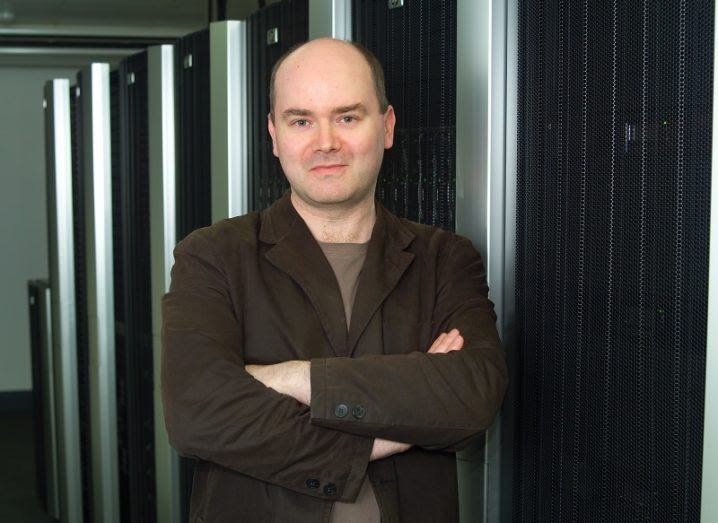Using High-Performance Computing for Efficient COVID-19 Testing
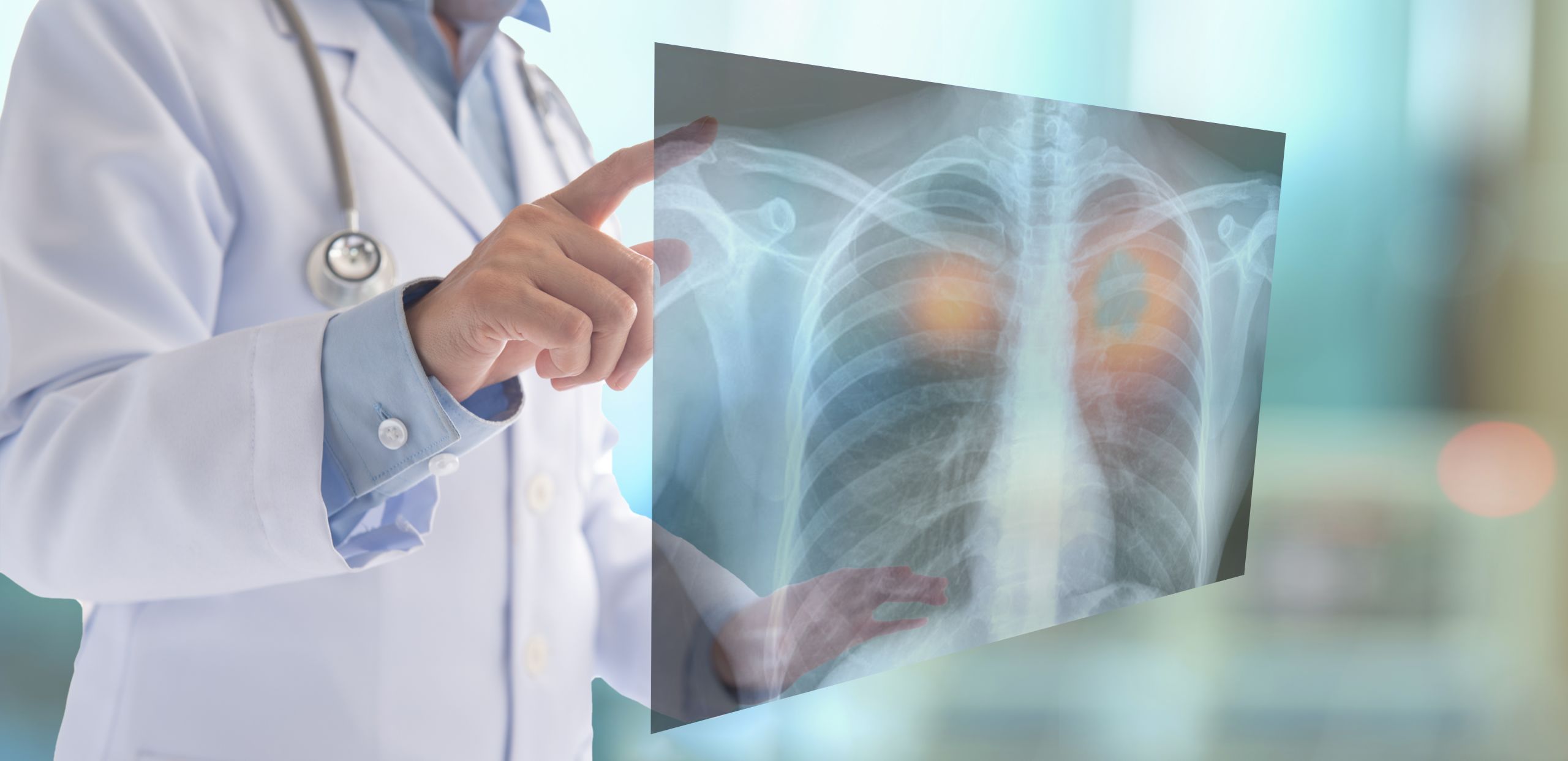
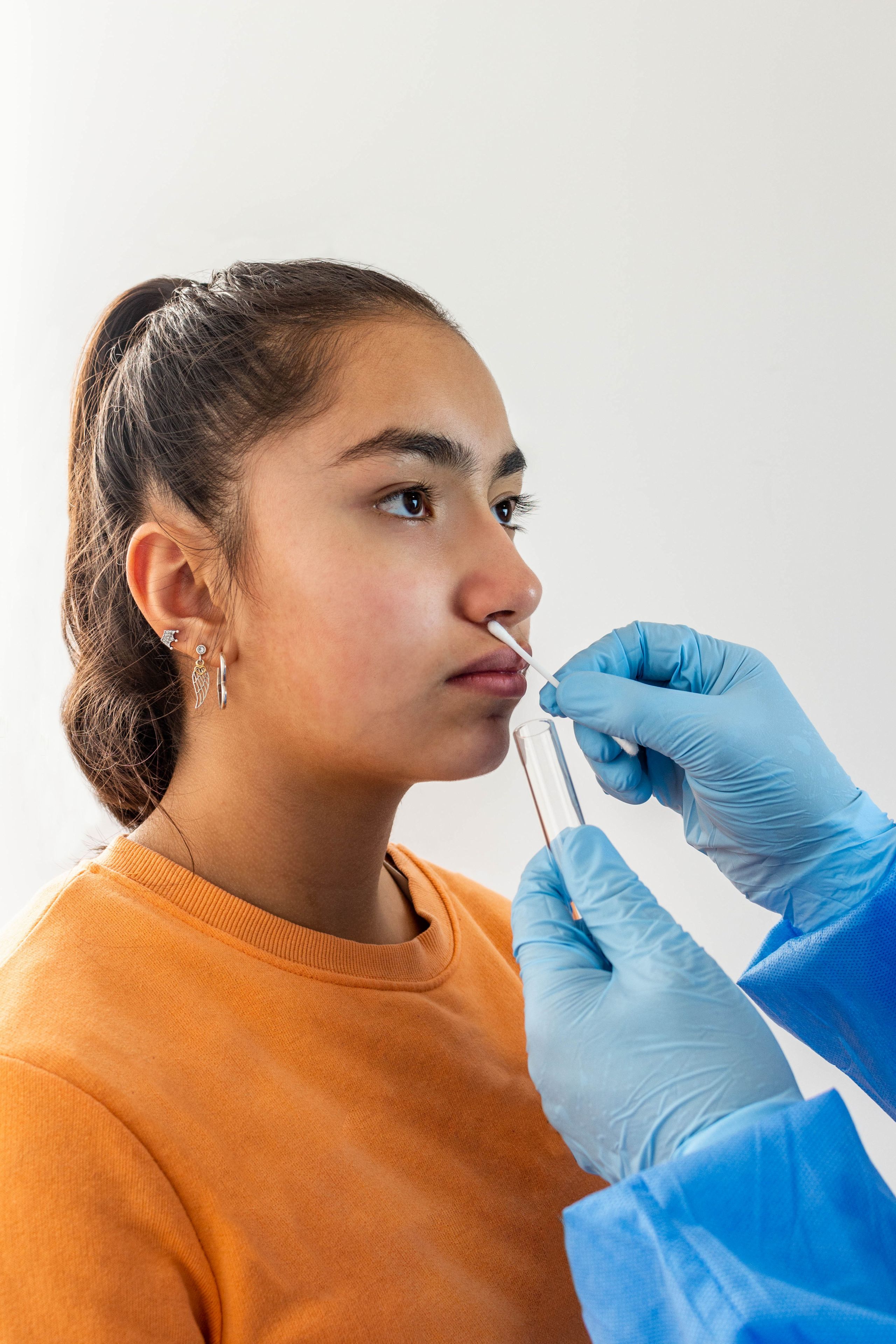
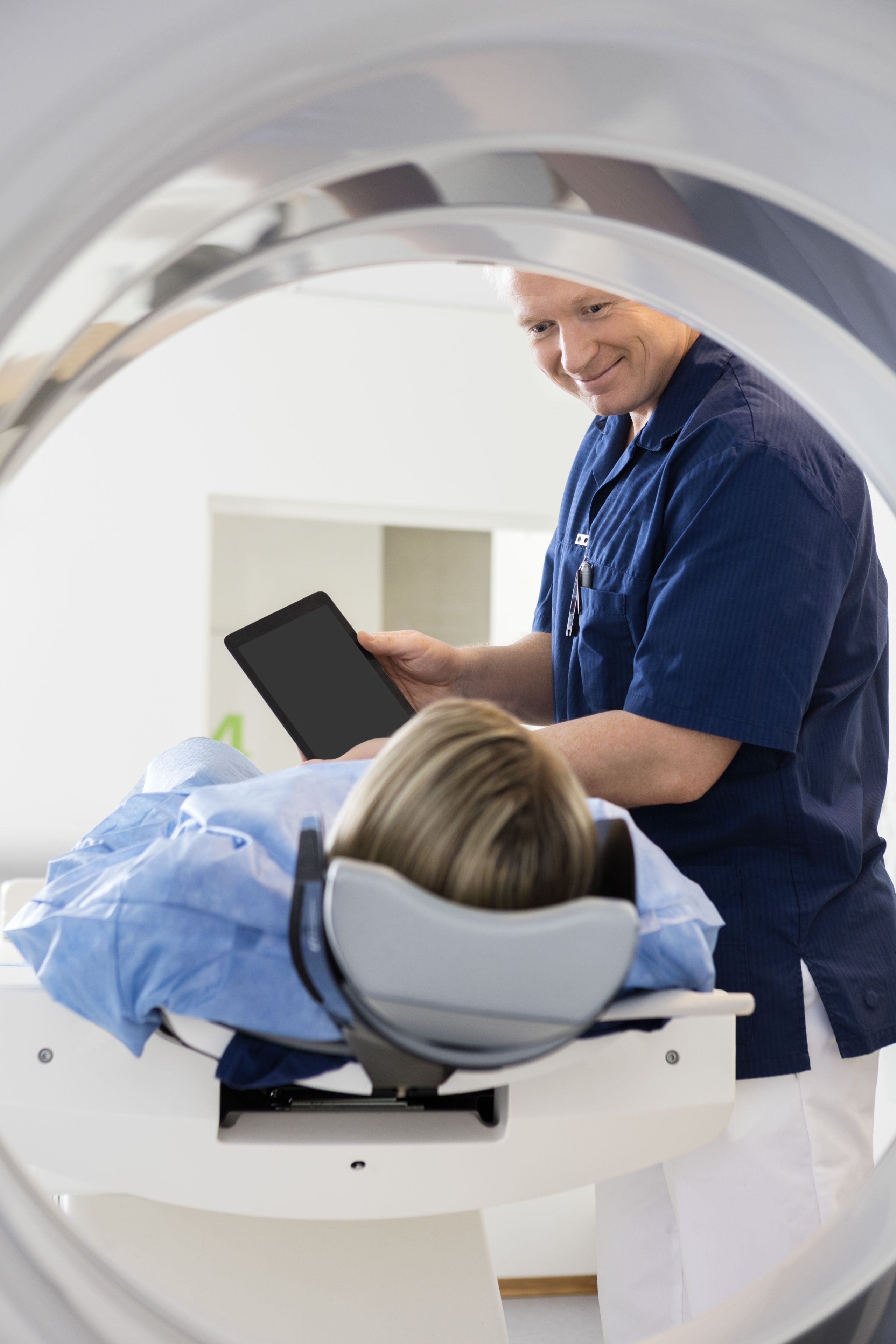
Using High-Performance Computing for Efficient COVID-19 Testing
In response to the COVID-19 pandemic, a team of researchers led by Dr Aaron Golden created a diagnostic imaging model, called ‘Kay’, to quickly process large volumes of chest images to speed up the identification of COVID-19 patients on admittance to hospitals. The researchers’ model uses artificial intelligence (AI) techniques to quickly evaluate computerised tomography (CT) chest scans. The advantage of this process is to speed up the assessment of patients with deteriorating COVID-19 symptoms. Diagnostic imaging is also more efficient and timely than PCR testing as a diagnostic tool.
Patients suspected of COVID-19 infection are tested using the 'gold standard' RT-PCR assay obtained via a nasal/throat swab. However, there can be significant time delays in processing such samples. More seriously, such swab tests can misdiagnose patients, giving a supposedly clean bill of health to patients who actually do have COVID-19 disease - the so-called 'false negative' problem.
This can be extremely serious for vulnerable patients with underlying medical conditions and for whom the earliest possible intervention is critical.
CT scans offer a quick (< 1hr) and efficient alternative means of diagnosing COVID-19, the radiographic data providing radiologists with evidence of disease etiology.
COVID-19 lesions in the lungs can be difficult to discern from community acquired pneumonias, other pulmonary disorders and against the diverse background of 'normal' lung conditions - particularly in the earliest stages of infection.
Dr Golden of the School of Mathematics, NUI Galway is building an AI imaging system to support radiology teams in expedited diagnosis of early stage COVID-19 disease using CT scans.
"This is where Artificial Intelligence (AI) could play a critical role in supporting radiology analysis, by training deep learning algorithms on a large dataset of CT scans of known status, and ensuring that all of the images to be used have been standardised across the various imaging protocols used at different CT scan facilities."
About the Project
The project uses cutting-edge AI infrastructure to standardise thousands of publicly available chest CT scans.
By using a type of machine learning algorithm called Generative Adversarial Networks, the team corrects for variations in imaging protocols between differing radiology facilities.
This will allow for the re-assessment of the performance of two recently published open source convolutional neural network based classifiers developed by medical researchers in China that have been previously shown to demonstrate high sensitivity/specificity in diagnosing COVID-19 in CT scans in selected patient groups with a high incidence of this disease.
Collaboration with Clinicians
Collaboration with clinician radiologists has been key to this project, and Dr Golden has worked closely with collaborators in University Hospital Galway.
The project team includes Dr Christoph Kleefeld (Medical Physics & Clinical Engineering, University Hospital Galway) and Dr Declan Sheppard (Clinical Director of Radiology, University Hospital Galway).
Their expertise has informed the characterisation of the full range of lesions identified in this process so as ensure expert oversight in highlighting regions-of-interest (ROI) on flagged scans.
The project team envisages the deployment of the trained AI solution to a stand-alone desktop system to allow radiologists to import CT scans and have a predicted diagnostic assessment and highlighted ROI within minutes in the clinic.
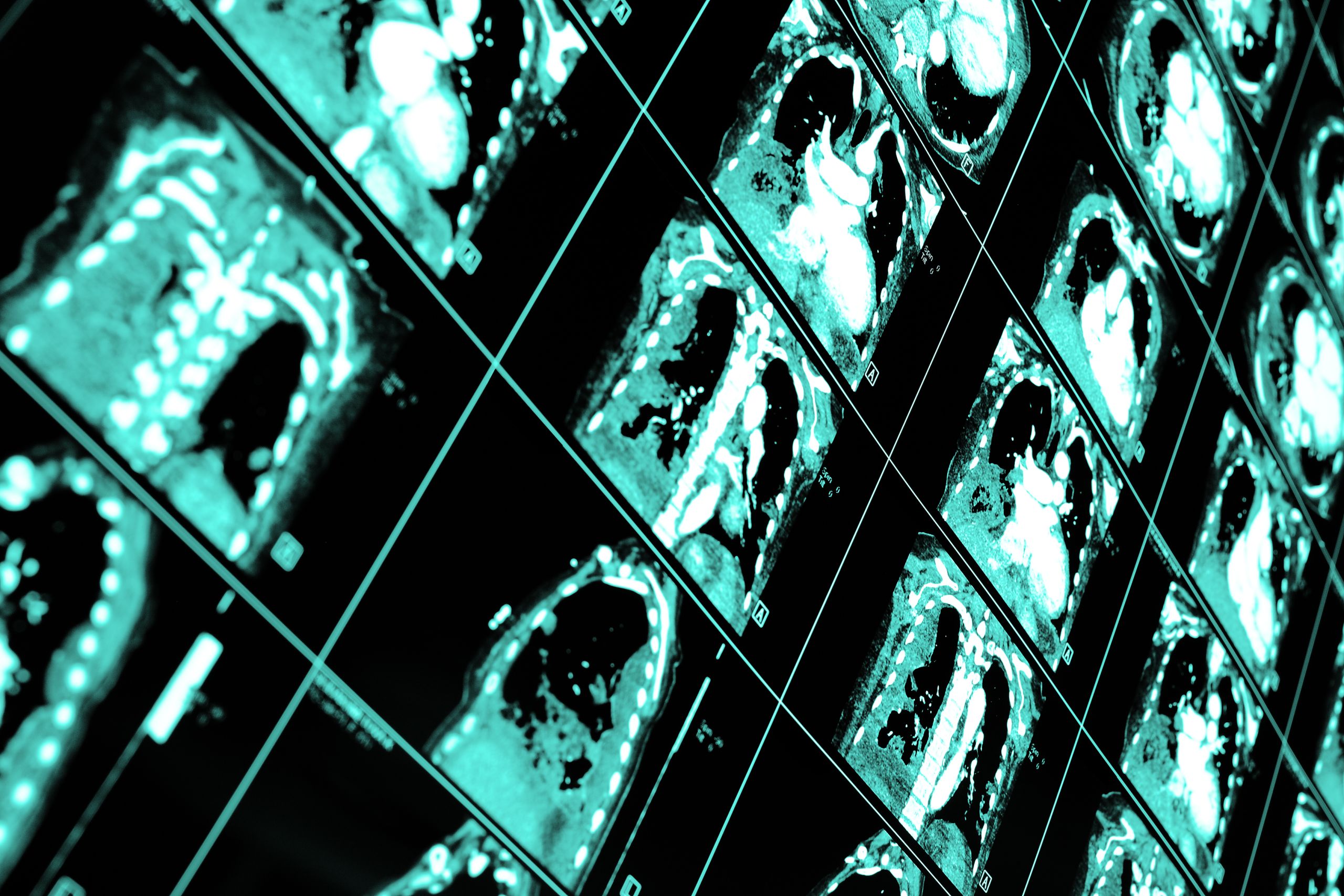
"Our project aims to build an AI imaging system to support radiology teams in the diagnosis of COVID-19 disease using CT scans - our turn-key system will be trained on thousands of different types of archival image data and when used to examine a suspected COVID-19 patient's CT scan, will be able to screen and report 'actionable' lesions in minutes, expediting the radiology teams' ability to identify the subtle differences between COVID-19 disease and other more common lung disorders, particularly in patients for whom immediate attention is critical"
Developing a Supercomputer for Efficient COVID-19 Testing
In January 2021, the project launched 'Kay', to help develop a system to quickly process large volumes of chest images so deteriorating Covid-19 patients can be identified when admitted to hospital, using artificial intelligence (AI) techniques to evaluate computerised tomography (CT) scans of the chest – as with many seriously-ill people who may have Covid-19, there is often insufficient time to do a PCR test to confirm diagnosis.
The Irish Centre for High-End Computing (ICHEC) expedited approval for this project using the national high-performance computer during COVID-19. The Irish Centre for High-End Computing is hosted in NUI Galway and the hardware is located in Waterford Institute of Technology.
The project is being undertaken by Dr Aaron Golden of NUIG school of mathematics, Dr Christoph Kleefeld of NUIG school of physics and Dr Declan Sheppard, clinical director of radiology at Galway University Hospitals.

“Everyone is used to the idea of nasal and throat swabs being used as the standard test for Covid, but they’re not 100 per cent accurate. In fact, they can miss genuine cases and there can also be significant delays in getting the result back, a quick and non-invasive means of determining this is via a CT scan. In less than an hour a radiologist can be in a position to see evidence of lesions on the lungs that would be indicative of Covid-19 ”
A phenomenal global effort is ongoing to put in place “a state-of-the-art AI machine” using software stacks that can be tuned by research groups to classify patient CT scans into likely-Covid or non-Covid groups.
“Tuning makes it sound like a minor thing, but . . . we’re talking about training AI systems over and over again with thousands of different CT scans.”
They will also use deep learning algorithms to standardise and train thousands of CT scans to eliminate “biases and artefacts that are a consequence of scans originating from different imaging centres taken using different settings”. This is a big data problem requiring a phenomenal amount of computation and where Kay’s computational power makes all the difference.
Dr. Golden has worked in the United States using supercomputing resources there.
“I have to say that the way ICHEC has optimised user access to Kay is as good as anything I previously used in the US, if not better. It is a fantastic asset for the health research community here in Ireland. ”
(Source: The Irish Times)
Dr. Aaron Golden
Dr Aaron Golden is a Lecturer in the School of Mathematics, Statistics and Applied Mathematics, a member of the School's Bioinformatics and Biostatistics Research Cluster and a PI in the Ryan Institute.
Dr. Golden is a physicist by training with 24 years experience working as a data scientist. He has successfully lead diverse teams working on projects covering topics in the earth observation, astronomical and biomedical sciences, with funding support from Science Foundation Ireland, Enterprise Ireland & the Environmental Protection Agency. Between 2011-2016 he benefited from extensive clinical research experience whilst an Associate Professor of Genetics (Division of Computational Genomics) at the Albert Einstein College of Medicine in New York City.
Irish Centre for High-End Computing
The Irish Centre for High-End Computing (ICHEC) is Ireland's national centre for High-Performance Computing (HPC) providing e-infrastructure, services and expertise to academia, industry and the public sector.
ICHEC enables the application of HPC for developing efficient services and solutions based technologies such as artificial intelligence, high performance data analytics, Earth Observation, quantum computing and cybersecurity across a number of sectors including environmental sciences, healthcare, agriculture, energy, financial services and ICT.
By operating Kay (Ireland's national supercomputer) and the National Quantum Learning Platform, ICHEC enables researchers, enterprises and the public sector to innovate solutions for complex social, economic and environmental challenges.
The Irish Centre for High-End Computing (ICHEC) expedited approval for this project using the national high-performance computer during COVID-19. The Irish Centre for High-End Computing is hosted in NUI Galway and the hardware is located in Waterford Instituted of Technology.

